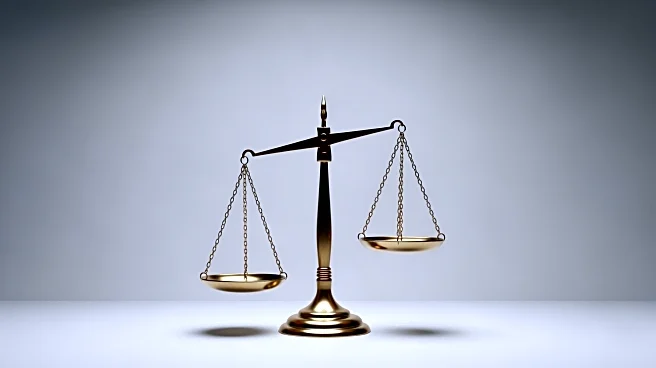What's Happening?
The NCAA has recently allowed student athletes to monetize their names, images, and likenesses (NIL), leading to significant changes in its amateurism model. This shift has resulted in legal challenges and the establishment of the College Sports Commission
(CSC) to oversee compliance. The CSC's enforcement has faced early difficulties, including inaccurate reporting of NIL deal approvals and delays in processing. The CSC initially reported clearing over 8,000 deals worth $80 million, but later corrected these figures to 6,090 deals totaling $35.42 million. The commission's ability to effectively police the industry is under scrutiny, with concerns about its staffing and the timeliness of deal approvals. The NCAA has responded by adopting emergency bylaw amendments to support CSC's efforts, requiring schools to disclose reporting failures promptly.
Why It's Important?
The enforcement of NIL compliance is crucial for maintaining fairness and integrity in college sports. The CSC's challenges in accurately processing and approving deals could impact athletes' ability to capitalize on their NIL rights, potentially affecting their financial opportunities. Schools and athletes face risks of penalties, including postseason bans and eligibility issues, which could disrupt team dynamics and competitive balance. The situation underscores the complexities of regulating NIL agreements and the need for effective oversight to prevent exploitation and ensure equitable compensation for student athletes. The NCAA's involvement through emergency legislation highlights the importance of establishing a robust enforcement framework to support the CSC's mission.
What's Next?
The CSC is expected to stabilize its operations and improve its enforcement capabilities. Schools and athletes must adapt to the new compliance landscape, with increased scrutiny on NIL deals. The NCAA's emergency bylaw amendments indicate a proactive approach to supporting CSC's efforts, suggesting further regulatory measures may be implemented. Stakeholders, including schools, athletes, and collectives, should prepare for potential enforcement actions as the CSC gains footing. The industry may see shifts in how NIL deals are structured and reported, with an emphasis on transparency and adherence to compliance standards.
Beyond the Headlines
The CSC's role in determining the validity of business purposes for NIL deals raises legal and ethical questions, particularly concerning labor and antitrust issues. The commission's approach to fair-market valuation based on athletic performance and social media reach could face challenges, as it may contradict its mission to prevent pay-for-play agreements. The evolving NIL landscape may influence broader discussions on athlete compensation and the commercialization of college sports, potentially leading to long-term shifts in NCAA policies and practices.
















